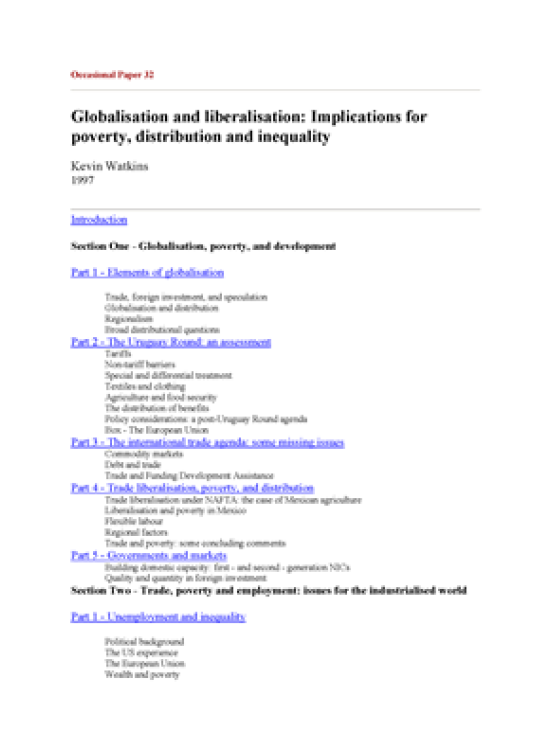Globalisation and liberalisation
Implications for poverty, distribution and inequality

Download Report by Language
Document
kevinwatkins.pdf
(133.88 KB)
Citation
Watkins, Kevin. 1997. Globalisation and liberalisation: Implications for poverty, distribution and inequality. New York.
Globalisation and liberalisation
Implications for poverty, distribution and inequality
Posted on: January 01, 1997
Some concepts come to define entire economic policy eras. For the 1990s, 'globalisation' will be recorded as the dominant theme. States are in retreat in the face of powerful international economic forces which, we are constantly told, are circumscribing their sphere of action. The resurgence of laissez faire economic theory celebrates the fact. While carrying different connotations for different people, globalisation encapsulates both a description of changing patterns of world trade and finance, and an overwhelming conviction that deregulated markets will achieve optimal outcomes for growth and human welfare. Seldom since the heyday of free trade in the nineteenth century has economic theory inspired such certainty - and never has it been so far removed from reality.